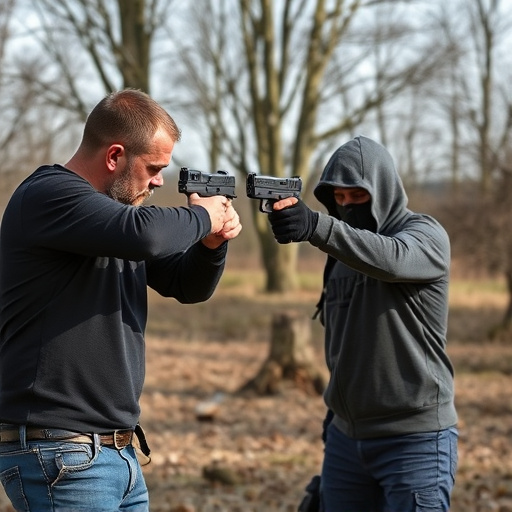The legality of owning a mini stun gun keychain varies greatly by US state, with each having unique regulations regarding power output, age restrictions, and concealed or open carry. Comprised laws mandate thorough research before purchasing to ensure compliance and responsible ownership, considering potential fines and imprisonment for violations. These regulations promote safety while allowing civilians to protect themselves with compact, easily accessible self-defense tools.
“Uncovering the intricacies of civilian taser ownership, this comprehensive guide navigates state-by-state laws and regulations. With an increasing focus on personal safety, understanding your rights and responsibilities is crucial. We explore diverse aspects, from age restrictions and background checks to permits and legal implications.
Learn how a mini stun gun keychain could be a viable everyday carry option, ensuring you’re prepared in various situations. Get ready to decipher the legal landscape and unlock your rights as a responsible citizen.”
- Understanding Taser Ownership Rights: A Comprehensive Overview
- State-by-State Regulations: Decoding the Legal Landscape
- Mini Stun Gun Keychain: A Viable Option for Everyday Carry?
- Age Restrictions and Background Checks: Ensuring Safety and Security
- Permits and Licenses: Unlocking Your Rights as a Citizen
- Legal Implications and Responsibilities: Carrying a Taser Legitimately
Understanding Taser Ownership Rights: A Comprehensive Overview
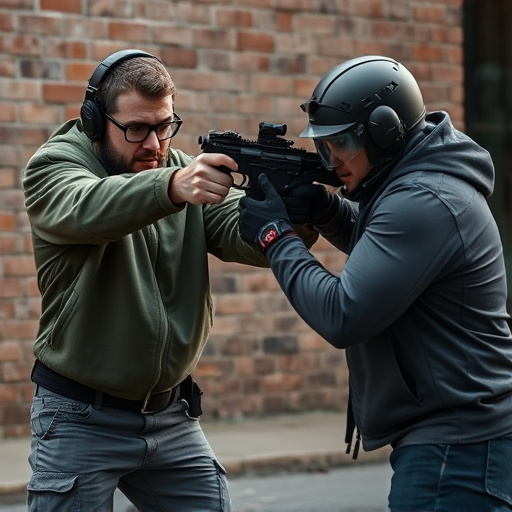
In many regions, civilians can legally own a taser for self-defense, with specific regulations varying by state. The mini stun gun keychain, designed for everyday carry, is a popular choice among those seeking personal protection. However, understanding these laws is crucial before making such a purchase. Each state has its own set of rules governing stun guns, including registration requirements, age restrictions, and permitted uses.
For instance, some states allow open carry while others require permit-based concealed carry. Certain locations might also have specific guidelines on the power output and size of the device. Individuals looking to acquire a mini stun gun for everyday carry should research their state’s laws thoroughly, ensuring they meet all necessary criteria before making a legal and safe purchase.
State-by-State Regulations: Decoding the Legal Landscape
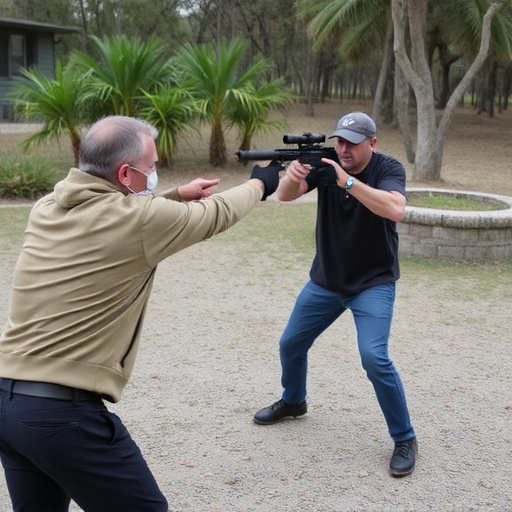
In the United States, the legal landscape surrounding civilian taser ownership varies significantly from state to state, creating a patchwork of regulations that can leave individuals confused about their rights and responsibilities. Understanding these state-by-state requirements is crucial for those considering carrying a mini stun gun keychain for everyday carry. Some states, like Texas and Florida, allow qualified individuals to possess tasers without a permit, while others demand strict adherence to licensing and training mandates.
These regulations often include specific rules on the type of taser permitted, its power output, and the circumstances under which it can be used. For instance, many states restrict the use of high-voltage tasers or require de-escalation training for their lawful deployment. Additionally, certain locations have unique requirements for purchasing and owning mini stun guns keychain, such as background checks, waiting periods, or age restrictions. Staying informed about these variations ensures compliance with local laws and promotes responsible ownership.
Mini Stun Gun Keychain: A Viable Option for Everyday Carry?
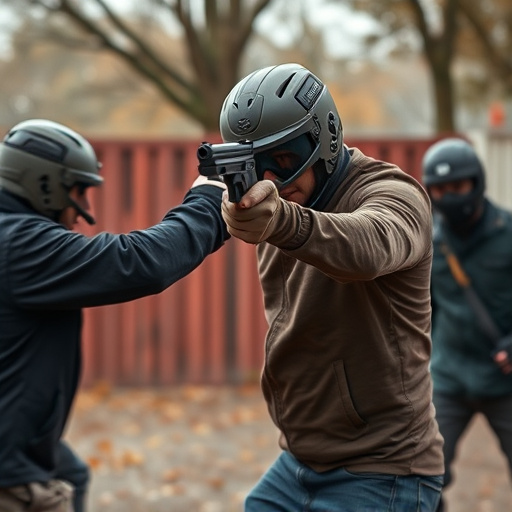
In recent years, the concept of personal protection has evolved, and one innovative tool gaining popularity is the mini stun gun keychain. This compact device offers individuals an easily accessible means of self-defense, making it a viable option for everyday carry. The appeal lies in its discreet nature; users can conveniently attach it to their keys or carry it in their pockets, providing peace of mind should they encounter potentially dangerous situations.
The mini stun gun keychain delivers a powerful electric shock, temporarily incapacitating an assailant while the user escapes. This personal safety device is designed for non-lethal force, making it legal in many areas without requiring extensive permits or training, unlike some other weapons. Its compact size and simple operation make it an attractive choice for those seeking an extra layer of security without sacrificing portability.
Age Restrictions and Background Checks: Ensuring Safety and Security
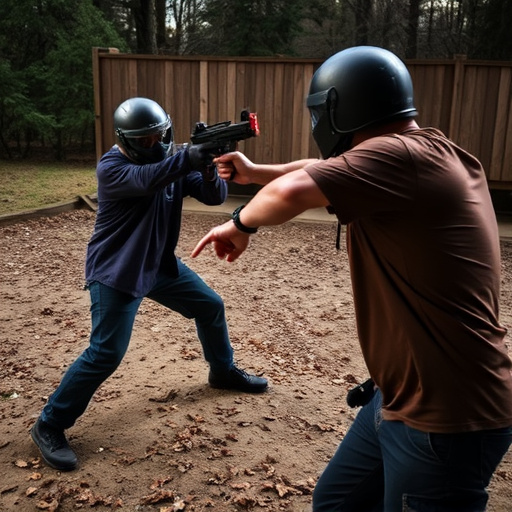
In many states, there are strict age restrictions and comprehensive background check requirements for civilian ownership of tasers, including mini stun gun keychains designed for everyday carry. These measures aim to ensure both safety and security within communities. Typically, individuals must be 21 years or older to purchase a taser, with some states even setting the bar at 25 or 30 years old. This age limit reflects the belief that younger people may lack the maturity and judgment necessary to handle such powerful tools responsibly.
Background checks are another critical component of these regulations. They help prevent individuals with a history of violence, criminal activity, or mental health issues from gaining access to tasers. These checks ensure that those carrying mini stun guns for everyday protection have a clean record and are unlikely to misuse the device, enhancing public safety overall.
Permits and Licenses: Unlocking Your Rights as a Citizen
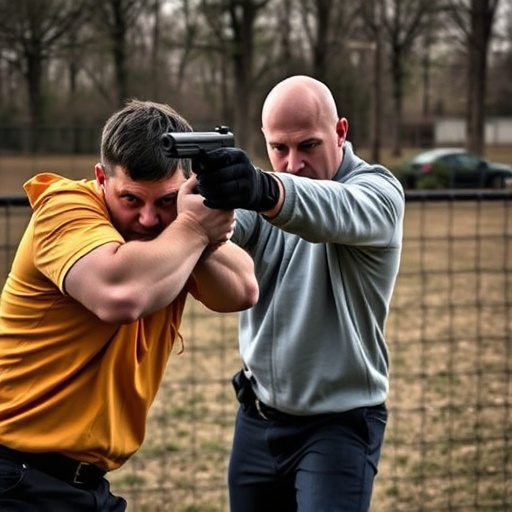
In many states, civilian ownership of a taser is regulated and requires specific permits or licenses. These regulations aim to balance personal safety and responsible gun ownership. Obtaining the necessary paperwork can vary widely from state to state, but it often involves background checks, training courses, and possibly even interviews. This process ensures that individuals who purchase a mini stun gun keychain for everyday carry are equipped with both the tool and the knowledge to use it safely and responsibly.
Permits typically grant specific permissions and come with conditions, such as allowing taser use only in self-defense or under certain circumstances. Licenses, on the other hand, might require ongoing training and recertification periods to maintain their validity. Understanding your state’s requirements is crucial before you consider owning a mini stun gun keychain for everyday carry. This ensures not only that you’re following the law but also that you have the necessary tools and skills to protect yourself effectively.
Legal Implications and Responsibilities: Carrying a Taser Legitimately
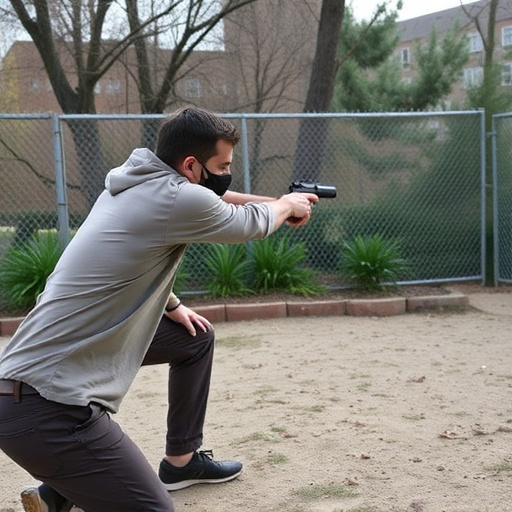
Carrying a taser, even if it’s as compact as a mini stun gun keychain designed for everyday carry, comes with significant legal implications and responsibilities. Each state has its own set of regulations regarding non-law enforcement civilian ownership of tasers. Failure to comply with these laws can lead to severe consequences, including fines, imprisonment, or both. Before legally acquiring and carrying a taser, individuals must thoroughly research and understand their state’s specific requirements.
State laws often dictate which types of tasers are legal for civilians, age restrictions, permit or licensing needs, and where and how the device can be carried. Some states allow only certain models, while others may have no restrictions at all. Moreover, users could face additional charges if they use their taser unsafely or in an inappropriate manner, especially if it results in harm to another person. Therefore, understanding not just what the law permits but also what it prohibits is crucial for anyone considering carrying a mini stun gun keychain for everyday carry.
In conclusion, navigating the complexities of civilian taser ownership involves understanding state-specific regulations, adhering to safety protocols, and ensuring legitimate acquisition. From comprehensive overviews to state-by-state decodings, this article has explored key aspects including age restrictions, background checks, permits, and legal implications. As technology evolves, considering a mini stun gun keychain for everyday carry can be a viable option, but it’s crucial to remain informed about local laws. By understanding your rights and responsibilities, you can make informed decisions regarding taser ownership while prioritizing safety and security.
